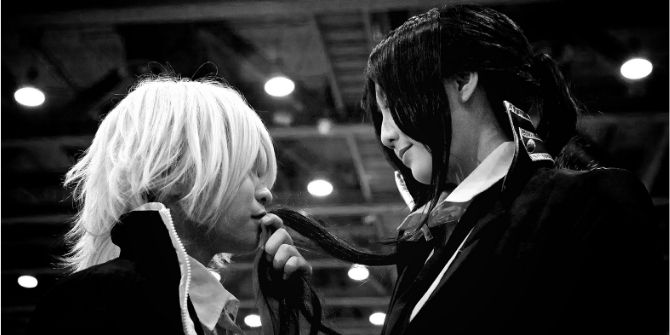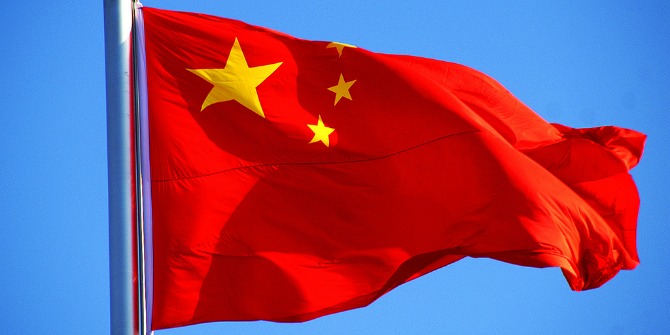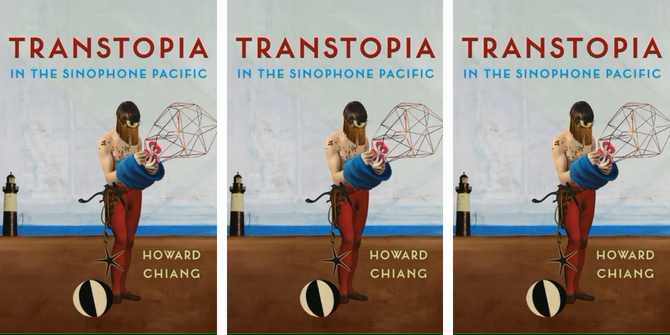This book examines the budding Chinese literary communities and their practices on the Internet. In Internet Literature in China, author Michael Hockx‘s theoretical use of postsocialism as an organizing concept in the exploration of China’s online literary communities is what makes this such a fantastic contribution, writes Casey Brienza.
This book review has been translated into Mandarin by Cheung Chantal Hung Ka (Mandarin LN340, teacher Lijing Shi) as part of the LSE Reviews in Translation project, a collaboration between LSE Language Centre and LSE Review of Books. Please scroll down to read this translation or click here.
Internet Literature in China. Michel Hockx. Columbia University Press. 2015.
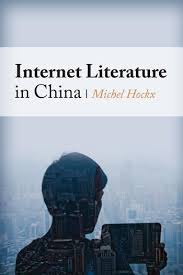 According to the Statistical Report on Internet Development in China, approximately 40 percent of all internet users in the People’s Republic of China accessed literature online in 2012. To put this into perspective, a similar proportion of people were using the internet for shopping during the same year. Although like all statistics the numbers conceal as much as they reveal and should be interpreted with some caution – certainly they would suggest that the Chinese literary culture has entered a brave new digital world. Yet despite interactive websites dedicated to literary output and discussion which, in some cases, are already a decade or more in age, this phenomenon has been grievously understudied.
According to the Statistical Report on Internet Development in China, approximately 40 percent of all internet users in the People’s Republic of China accessed literature online in 2012. To put this into perspective, a similar proportion of people were using the internet for shopping during the same year. Although like all statistics the numbers conceal as much as they reveal and should be interpreted with some caution – certainly they would suggest that the Chinese literary culture has entered a brave new digital world. Yet despite interactive websites dedicated to literary output and discussion which, in some cases, are already a decade or more in age, this phenomenon has been grievously understudied.
Until now. Enter Michel Hockx, professor of Chinese at SOAS, University of London and founding director of the SOAS Chinese Institute. He is interested in contemporary Chinese literary communities, specifically in relation to their strategies of self-organization, along with their relationships to the state and to publishing technologies. Other areas of research include Chinese poets and literary journals of the early twentieth century, most notably in the monograph Questions of Style: Literary Societies and Literary Journals in Modern China, 1911-1937 (Brill 2003). His latest book, the first ever monograph length, English language study of Internet literature in China and appropriately titled Internet Literature in China, clearly builds upon earlier work by expanding the study of Chinese literary communities and their practices on the Internet.
Published in attractive hardcover by Columbia University Press in 2015, this book is intended as a general overview of its subject suitable both for specialists and general readers. Specifically however, as Hockx explains, it explores ‘the ways in which Internet literature brings about literary innovation and challenges existing paradigms of “electronic literature,” and the ways in which this literature specifically challenges the established publishing system of the People’s Republic of China, bringing about changes and adjustments to the regulatory regime’. This is occurring, crucially, in a wider socio-political context of postsocialism, where socialist mindsets linger even as socialist institutions are being dismantled.

Internet Literature in China has only four substantive chapters, but each is considerable, combining both wider substantive issues with close, ethnographically-informed close readings of selected authors’ textual output, some of which, sadly, have already disappeared from the ‘living’ digital ecosystem. Chapter 1 provides an historical overview along with an in-depth case study of Under the Banyan Tree, probably China’s first successful literary website, and the online diary of the cancer patient Lu Youqing, which made it famous. Chapter 2 looks at three Internet authors, Chen Cun, Wen Huajian, and Han Han, who have each pioneered new and often interactive forms of literature, such as microblog novels, and literary criticism. Chapter 3 explores online fiction, particularly in relation to censorship, and the fourth and final chapter focuses on online poetry, including works by the avant-garde Datui and the visual poetry of Dajuin Yao.
Inasmuch as Hockx’s aim was to appeal both to specialists and to general readers, there is no doubt that he has succeeded. As a sociologist with a keen interest in cultural production, publishing, and digital media, but with no particular expertise in China, I found myself at once sympathetic to the assumption that art is formed collectively, and riveted by the case studies of writers and websites which have no easy equivalent in the western world. Arguably most valuable theoretically is the use of postsocialism as an organizing concept in the exploration of China’s online literary communities. For those of us weaned on the sociology of Pierre Bourdieu, the way in which legitimate art is linked both to the state and to commerce in China is quite the departure from the usual claims about autonomous (or heteronomous) cultural fields and virtually impossible to neatly reconcile. This book challenges the Eurocentric construction of social theory. This, in my view, is a good thing!
Nevertheless, I was a bit disappointed by how otherwise conventional the range of author case studies were by cramped western standards of literary and artistic merit Texts analyzed tended to be modernist, avant-garde, and/or experimental; the majority of authors discussed in detail were, furthermore, male. This is despite the enormous popularity, for instance, of stories featuring homoerotic encounters between male protagonists such as boys’ love (BL) and slash fanfiction among Chinese women (not to mention scholars); Hockx devotes less than a page to this subject in Chapter 3. While deeply indebted to sociological approaches to the study of literature, this book is less attentive to its own reproduction of status hierarchies and judgment of taste than might otherwise be warranted. It may perhaps have also been a bit too hasty in its celebration of the amateur in Chinese internet literature irrespective of the wider political economy.
All in all, though, Internet Literature in China is a fantastic and novel contribution to the study of literary production in the digital age, and one that is bound to appeal far beyond the field of Chinese literature. Hockx seems to have put a decade’s worth of work into his research, and I would expect this book, notwithstanding the ephemeral nature of many of his objects of study, to stand a test of time far, far longer.
Casey Brienza is Lecturer in Publishing and Digital Media in the Department of Culture and Creative Industries at City University London. She holds a PhD in Sociology from the University of Cambridge. To date, she has written over fifteen articles and chapters about transnational cultural production and consumption and the political economy of the global culture industries, specifically as these relate to publishing and emerging digital technologies. Casey is the author of Manga in America: Transnational Book Publishing and the Domestication of Japanese Comics (Bloomsbury 2016), editor of Global Manga: “Japanese” Comics without Japan? (Ashgate 2015), and co-editor with Paddy Johnston of Cultures of Comics Work (under contract with Palgrave Macmillan). She may be reached on Twitter @CaseyBrienza or through her website.
Note: This review gives the views of the author, and not the position of the LSE Review of Books blog, or of the London School of Economics.
书评:《中国网络文学》Michel Hockx. Columbia University Press. 2015.
Review translated by Cheung Chantal Hung Ka (Mandarin LN340, teacher Lijing Shi).
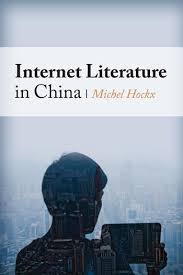 根据《中国互联网发展状况统计报告》, 2012 年中国有大约百分之四十的互联网用户在网络上浏览文学作品。从另一个角度来看,同年有相近百分比的用户使用互联网购物。统计数据往往在传达信息的同时掩盖部分的事 实,因此我们应该更加谨慎地处理这些数据。 毋庸置疑,以上的数据反映出现今中国文学已经迈进一个电子新时代。然而,在这十年来,尽管互动型网站已经致力鼓励文学作品的发表和讨论,对这种现象的研究依然很少。
根据《中国互联网发展状况统计报告》, 2012 年中国有大约百分之四十的互联网用户在网络上浏览文学作品。从另一个角度来看,同年有相近百分比的用户使用互联网购物。统计数据往往在传达信息的同时掩盖部分的事 实,因此我们应该更加谨慎地处理这些数据。 毋庸置疑,以上的数据反映出现今中国文学已经迈进一个电子新时代。然而,在这十年来,尽管互动型网站已经致力鼓励文学作品的发表和讨论,对这种现象的研究依然很少。
现在,让我们介绍一下 Michel Hockx。他是一位伦敦大学亚非学院(SOAS)的中文教授, 同是也是亚非学院中文学院的创办人。他对当代中国文学社群特别感兴趣,尤其是关于他们的自我组织策略以及他们与国家和出版技术的关系。他的其他研究领域还包括二十世纪初的中国诗人和文学期刊,最著名的是《 风格问题:现代中国文学社会与文学刊 (1911-1937) 。Michel Hockx 的新书《中国的网络文学》是第一本分析中国网络文学的英语专著。他的这本专著显而易见是建立在早期的作品的基础上,并更加深入地探讨中国文学社群以及他们在互联网上的实践活动。
《中国的网络文学》 是由哥伦比亚大学出版社于 2015 年精装出版。本书概述回顾所探讨的主题,不但适合专家,也适合普罗大众阅读。 正如 Hockx 所解释的,这本书具体探讨了网络文学作品如何推动文学创新和如何挑战现有的电子文学作品模式,也研究了网络文学作品如何挑战中华人民共和国已有的出版体系,反映出现实监管制度的变化和调整。随着后社会主义越来越普遍,并成为了现今的社会政治后背景,这种现象的出现在所难免。尽管社会主义制度正逐步被瓦解,可是社会主义思想仍然存在。
 Image Credit: Neon Internet Cafe, Justinc. Wikipedia. CC-BY-SA 2.0
Image Credit: Neon Internet Cafe, Justinc. Wikipedia. CC-BY-SA 2.0
《中国的网络文学》 这本书只有四个独立的章节,但是每个章节的内容都是相当深厚的,结合了广泛的实质问题和对于一些选编的民族志学近距离分析。可惜,它们有一些已经从现今的数码生态系统中消失。第一章节回顾历史,并对“榕树下”和癌症患者吕友清 (Lu Youqing) 的网上日记进行了深入的案例分析。“榕树下”大概是中国第一个成功的文学网站,而吕友清的日记让这个网站一举成名。第二章节探讨分析三名网络作家,陈村,文华建 和韩寒。他们各自开创了新颖互动的文学形式, 如微博小说和文学批评。第三章节针对研究涉及审查制度的线上小说,而最后章节则集中探讨网上诗歌,其中包括 Datui 前卫的作品和姚大钧的视觉诗歌。
由于 Hockx 的目标是要吸引专家和大众读者,毋庸置疑,他成功了。作为一名非中国专家,而又对文化生产,印刷和数字媒体拥有浓厚兴趣的社会学者,我对于艺术是集体形成这个假设深表同情。同时,我对于跟西方国家完全不同的作者和网站的案例分析很感兴趣。或许,理论上最具价值的是在探讨中国网络文学社群的过程中把后社会主义作为结构概念。对于我们这些从小受到皮埃尔·布尔迪厄(Pierre Bourdieu) 的社会学影响的人来说,合法艺术与中国国家和商业之间的联系跟我们一般主张自主(或异律)文化领域的观念大相径庭,导致我们几乎不可能把这两种概念融 合。这本书挑战了以欧洲为中心结构的社会理论。依我看,这是一件很好的事情!
然而,作者案例分析的范围局限于狭隘的西方文学标准,艺术价值文本的分析倾向于现代主义,前卫和实验性的。此外,大多 数被详细研究的作者是男性。我对于这些旧模式而感到有点失望。尽管以同性恋情为题材的故事受到热烈的追捧,可是 Hockx 在第三章节中仅以一页不到的篇幅草草带过。虽然这本书对于文学研究深刻地采用社会学的方 法,但是它忽略了自身所产生的地位等级制度以及对于品味的评判,否则可能会更合理。 作者忽视广阔的政治经济环境而表扬中国网络文学的业余爱好者可能有点轻率。
总而言之,《中国的网络文学》 是对于数码时代的文学生产研究一个极好和新颖的贡献,其影响力势必远远超越中国文学的领域。Hockx 似乎把十年的努力投入到他的研究中;虽然这 本书许多的研究对象属于短暂性质,我仍然期望它能承受得起时间的考验。



